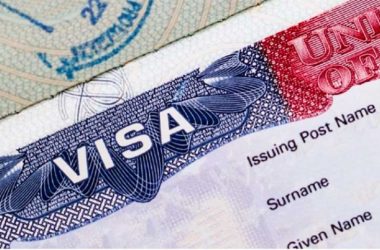
Politicization of the COVID-19 pandemic is most undesirable and counterproductive, but also unavoidable – if only because politics drives gubernatorial decisions, including on health policy.
Take the UK, where Boris Johnson’s ruling Conservative Party earlier this week had to depend on the Opposition Labour Party for parliamentary support to legislate new COVID restrictions needed to fight Omicron, but considered too drastic by too many Tory MPs.
Naturally, Labour Leader Sir Keith Starmer, while helping Johnson sail through this rough patch, also took as much wind out of him by reminding the public it took the (Opposition) Labour Party to get the government to do what it was elected to.
Already badly wounded by the Kent and Delta variants, the UK last week reported that Omicron accounted for 40% of new infections in London.
Given early signs that Omicron can spread 70% faster than Delta, Johnson decided to make the new protocols mandatory, but without using the word.
But his government was being reported as ‘ordering’ people to work from home, wear masks in public places and use COVID-19 passes (also called COVID passports) to enter certain venues.
Omicron having taken its first life in Britain, hastened daily related hospitalizations and expected to become the dominant strain in London by the end of the holiday season, Johnson had to eat humble political pie, follow the Science and take healthy advice.
At a time when his sausage was being fried for breakfast by the press over revelations that ‘Christmas parties’ were held at 10 Downing Street at this time last year when the nation was ordered to observe strict Social Distancing, Johnson badly-needed a way out of the frying pan.
Like everywhere else, the vaccine skeptics and anti-vaxxers in the Tory parliamentary party revolted against Johnson, while others used the occasion to vent their long-winded anger against the same man they counted on to win elections, but are now ready to dump (if needs be) so the party can stay in office.
The ‘anti’ arguments are the same: vaccine passports are useless, people should not be told to work from home and enforcing mask-wearing are all ‘too draconian’; and mandating adherence to protocols contravenes citizens’ ‘responsibility for their own health.’
Britain, under Johnson, largely funded the Oxford-AstraZeneca vaccine’s development on conditions that included it be ‘Not-For-Profit’ — and that the UK get preferential treatment when the vaccines started rolling out.
But the UK has been unable to get COVID-19 under control, with every new variant seeming to hit harder on immediate arrival.
Johnson has also faced many losses in the COVID battle: the scientists say his administration reacted too late, the health service took early deadly blows at elderly care homes, restrictions were eased and strengthened with equal ease as protocols were haphazardly applied and the National Health Service (NHS) registered its highest level of vacancies as frontline workers withdrew under pressure.
Then came the revelations and claims by the Prime Minister’s former chief advisor Dominic Cummings; and later, the forced resignation of Health Secretary Matt Hancock over a leaked security camera still-shot of him kissing an aide in an office corridor.
Britain (and several other G-7 nation spent trillions registered over 60% vaccination levels, but even that wasn’t enough to keep the virus at bay, leading to a UK-USA transatlantic deal to use only Pfizer vaccines for third ‘Booster’ jabs for Brits (especially the elderly), as well as making vaccines available to students and children without parents’ knowledge and/or consent.
Having triumphed despite all those COVID wars, Johnson – with advanced assurance of Opposition support — took the parliamentary fight to his friendly foes, daring them to oppose new laws to protect citizens against Omicron — and expose themselves as not supporting his government’s efforts to care for the nation’s health.
And they fell for it – inflicting another heavy blow against their own party ahead of a crucial election in a seat they’ve held for about two centuries and some mid-term local government elections that will serve as weather vanes for Johnson’s future as Tory Leader.
In all of this, Johnson has had to fight the COVID battle knowing many peers had long knives at his back, only waiting to pierce at the right time.
No Government Leader ever wants to be in a position of having to rely on Opposition support to pass new laws, but with his back against the wall both at Downing Street and Westminster, Johnson rolled the dice – and with confidence.
Omicron had been detected in more than 70 nations by Wednesday; and moving 70 times faster than Delta, it’s just a matter of time before it becomes the dominant strain.
But just as Johnson was also forced to tell Brits when the stuff hit the fan, early signs that Omicron may be milder than Delta should not offer comfort to or dissuade people anywhere from getting vaccinated.
Nor should it be assumed that somehow Omicron will cause Delta to vanish, because the two strains will coexist — and more likely lengthen than lessen the time COVID-19 remains a global problem.
Which is why Johnson, under pressure from people complaining of Lockdown Fatigue and unlimited restrictions, also advised Britons to “Learn to live with COVID’.
The realities Johnson faced fighting COVID also do reflect in the mirrors of Caribbean politics, with governments mainly fearing engaging in or encouraging public discussion about ‘mandatory vaccination’, even if only to better enable citizens to make informed decisions.
Eyes on the next elections or unwilling to do the right things they may consider politically wrong (as in politically harmful or electorally costly), Caribbean politicians of the old type (even in new clothes) quicker opt to settle for options that play to the gallery than solutions tested and/or proven successful by science.
In all these senses, regretfully, politicization of the pandemic is as potent as its monetization.













